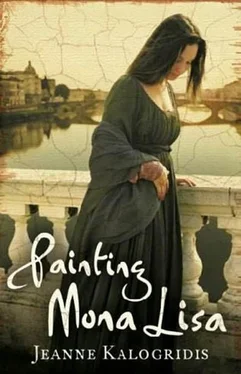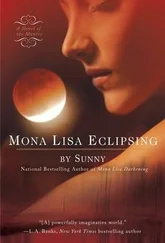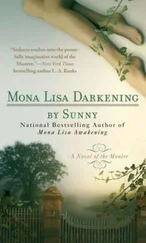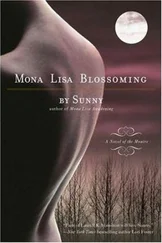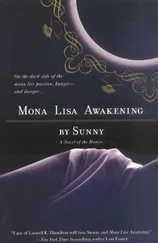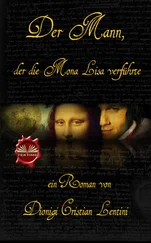“It’s… a family tradition,” Francesco said, suddenly uncomfortable. He folded his hands behind his back. “It was my mother’s… and my grandmother’s.”
The stone was clouded, dull, the piece unremarkable, except for the fact that it was very old. Black tarnish stubbornly surrounded each pearl, despite the fact that the brooch had recently been polished.
A tradition, I thought. For all of his brides.
“Thank you,” I said stiffly, bracing myself for the cruelty that would certainly follow.
But something entirely impossible and remarkable occurred; Francesco’s expression remained mild, almost bored. He stifled a yawn.
“You’re certainly welcome,” he said, his manner diffident. “Well, then.” He glanced around awkwardly, then smiled again at me. “It has been an exhausting day for you, I am sure. I’ll see you come morning. Good night.”
I stared up at him in disbelief. He was uncomfortable, anxious, eager to be done with me. “Good night,” I said.
He left. I quickly set the brooch down, put my ear to my closed door, and listened to him move down the hall and descend the steps. Once I was sure he had gone, I opened my door to call Zalumma-and started to find her already there.
Her gaze was fastened on the dark stairs. “Is he coming back?” she whispered.
“No.” I pulled her into the room.
Her jaw went slack; her mouth opened and her eyes opened wider. “What happened?”
“Nothing.” The realization that my performance this night was finished overwhelmed me. I felt suddenly exhausted, and barely made it to the bed before my legs gave out entirely. I sat, my back against the sturdy wooden headboard, my legs spread out before me, and mindlessly picked up a rose petal and fingered it. Zalumma tipped the flagon of wine and filled the silver goblet, then handed it to me. Its aroma was surprisingly appealing, given that I had felt so ill earlier in the day. I took a small, careful sip and savored it on my tongue; it was as delicious a wine as I had ever tasted, as good as any served by the Medici.
For the first time that day, I relaxed enough to notice her. She stood at the bedside and frowned, watching me carefully to make sure the drink appealed, that I would not become ill. She was quite handsome that day; her worrying over me had caused her to lose weight recently, which made the cheekbones beneath her dark, upward-slanting eyes more prominent. The ink-black hair around her face had been finely braided, the bulk of it pulled back into a veil of creamy silk; her gown was of rich brown wool edged with gold-colored ribbon.
“What did he say?” she demanded, when she could no longer bear my silence.
“He gave me a gift.” I nodded at the garnet brooch on the bedside table. “He gave me a gift and said I must be tired, and then he excused himself.”
She stared at the brooch. “He’s mad.”
“Perhaps he’s ill,” I said. “Or perhaps he’s tired himself after so many preparations. Look at the bed.” Her gaze went to the embroidered velvet cover, the matching hangings. “He had all this done for me.”
“It’s the least he could do,” she said, her tone hard.
I took another cautious sip of wine and realized I was ravenous. I looked at the plate of dried grapes beside me and frowned. The servants had assumed I would be stuffed after feasting all day and had left these as sweet morsels to be enjoyed with the wine; they did not yet know I disliked raisins.
Zalumma noticed at once. “Are you hungry? You’ve eaten nothing today.”
“I would love some bread and cheese.”
“I’ll find some.”
I paused. “Bring another goblet-for yourself. And whatever else you wish. I don’t want to eat alone.” Francesco would think it improper, but I didn’t care. I was giddy with relief and, despite my weariness, suddenly in the mood for a small celebration. For at least one night I was free of Francesco’s brutal attentions.
“Are you sure, Madonna?”
I clicked my tongue in disgust at the question and waved her off.
While she was gone, I sat with my eyes closed. I was grateful beyond words to be left alone on my second wedding night; I had not wanted to profane the memory of the first. Aloud, I promised Giuliano: “I will tell your child everything I know of you, of your goodness, and of your father’s. I will tell him of your uncle-my father. And I will teach him everything I know of love and kindness.”
I closed my eyes and saw Giuliano kneeling on the floor of the chapel after parting the garland of flowers, smiling up at me.
I smiled, too. And when Zalumma appeared at the door with a tray balanced on one hand, my lips were still curving. On the tray were three different cheeses and half a round loaf of bread. I was glad to see she had brought a second goblet.
“You’re feeling better,” she said, pleased. “I never saw such a kitchen. You would think they had expected an army today.” Her tone carried a curious undercurrent.
“What is it?” I demanded. I knew she had discovered something, seen something. “What has happened?”
She carefully pushed the lamp aside and set the tray down on my bedside table. “Ser Francesco,” she said, her tone puzzled. “When I went down to the kitchen, I could see lamps outside the front door, and hear men’s voices.”
“And?”
“I went to the window; I had no candle, so they couldn’t see me. The stableboy was opening the gate. Ser Francesco was on horseback, alone. He was speaking to the boy. I think he was telling him when to expect him back. He kept glancing about as if he were worried that someone might see him.”
“He left,” I said to myself, trying to fathom what it could mean. Perhaps I should have been concerned, but I was simply happy that he was gone. “It doesn’t matter,” I pronounced. “Here.” I lifted the flagon of wine. “Drink with me, and have some food. I’ve survived my first night here.”
We ate and drank. When we grew tired, I insisted Zalumma lie down beside me. As a slave, she found the liberty of lying down upon her mistress’s bed uncomfortable; she did not want it thought she had forgotten her place, and she knew Isabella and Elena would notice if she had not slept in her bed in the servants’ quarters. But at last she fell asleep.
I dozed for a while, too. I dreamed that I was in the wrong house, with the wrong man; the grief of it woke me. I sat up to find Zalumma snoring softly beside me, still dressed in her wool gown, her veil askew, the wood in the fire now reduced to glowing ash.
It came to me clearly, then, that I was truly married to Francesco, that Giuliano was dead, that these facts could never be undone. I realized that I was going to cry, and violently-and I did not want to be seen or heard.
I slipped from the bed and, shivering from the cold, hurried quickly, quietly, out of the room. I closed the door behind me and ran halfway down the stairs, then sat upon a step.
Before I could release the first hoarse sob, a sound stopped me: clumsy footsteps coming in my direction. Yellow lamplight wavered far below me, then gradually lit up the wall like a spreading stain.
I knew before he appeared that it was my husband. Swaying, he paused to orient himself on the second-floor landing, only a few steps below me.
“Francesco,” I said softly. I meant only to think it; I did not want to be noticed, least of all by him.
But he heard and looked up at me, startled.
“Lisa,” he slurred. He was very drunk. He held up the lamp and squinted at me. He was swaddled carelessly in a black mantello; as he lifted the lamp, the end of it slipped down to reveal his wedding tunic and leggings.
Near his right hip, the hem of his tunic was bunched up, and his leggings bunched down; and the white wool of his undershirt protruded like a flag.
Читать дальше
Конец ознакомительного отрывка
Купить книгу
